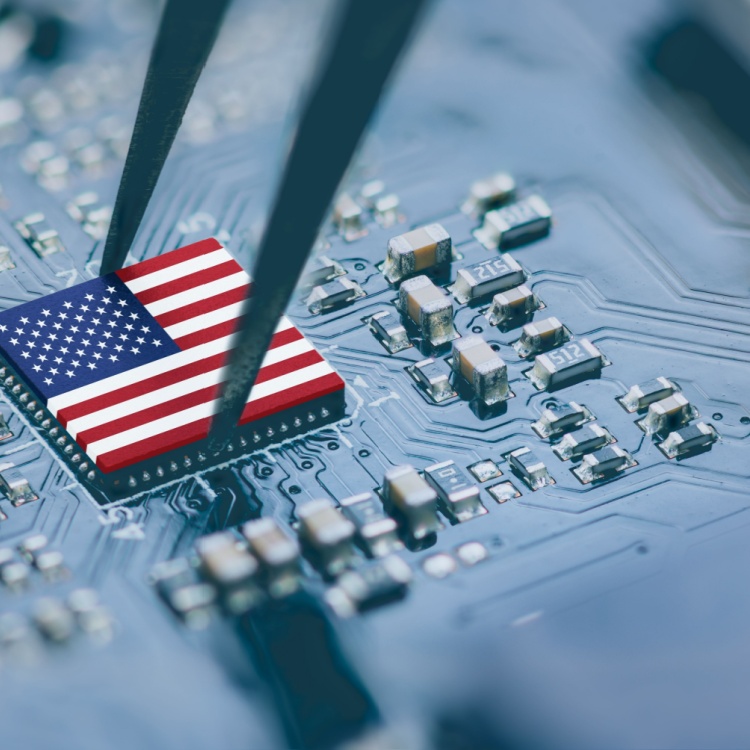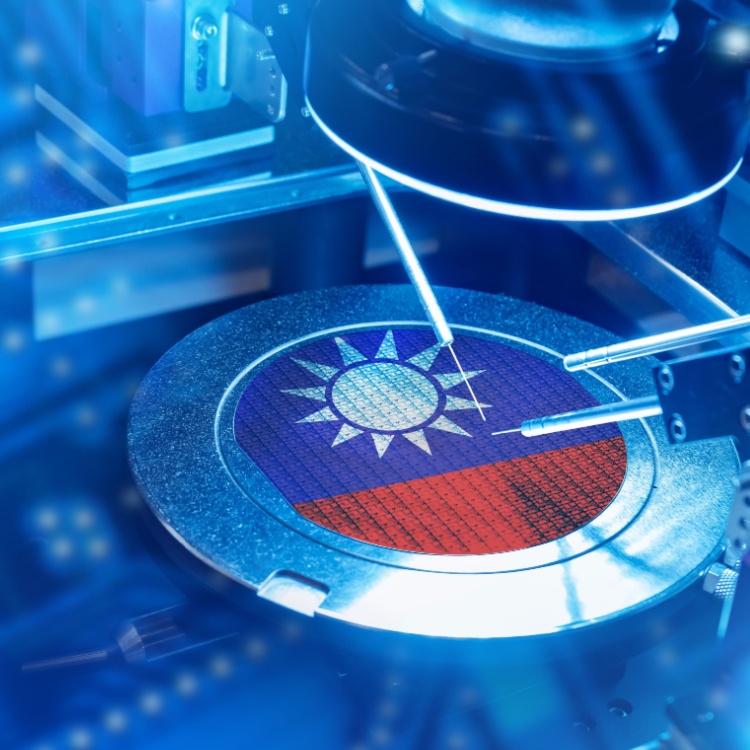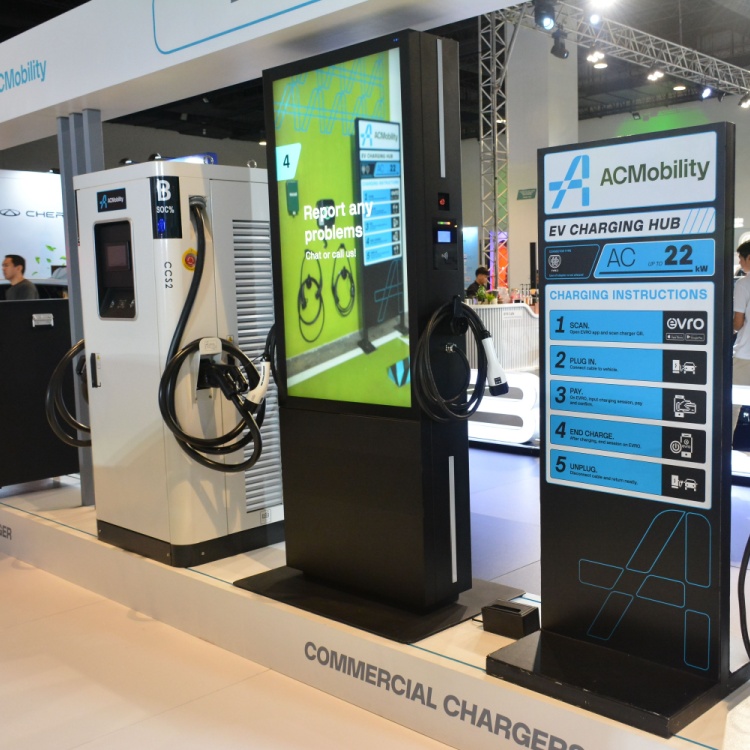World Politics: An Important Link in the Supply Chain
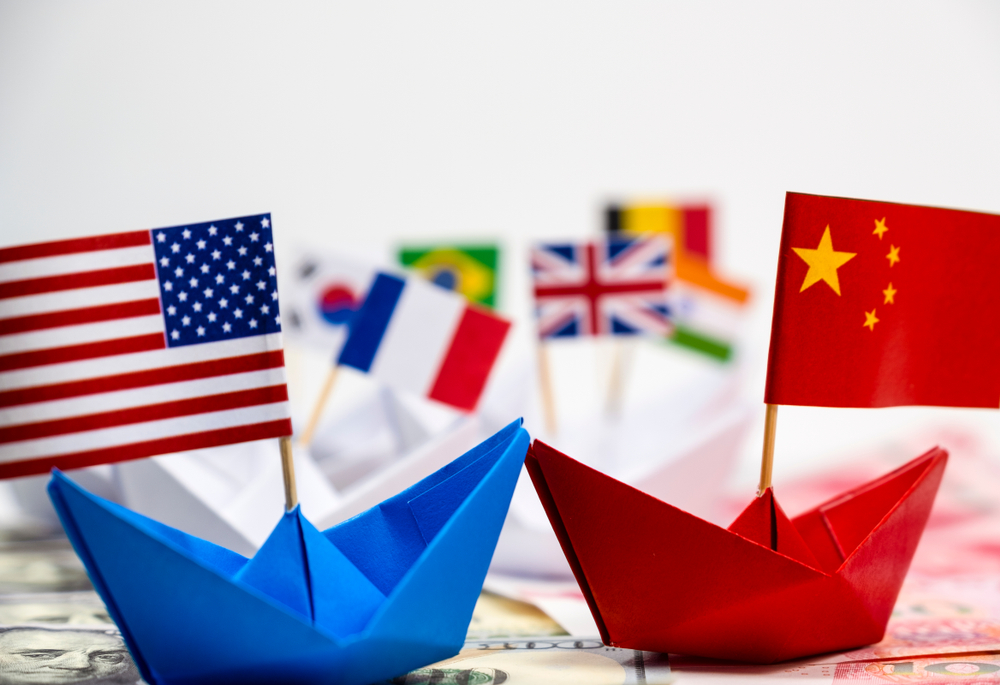
“Everything, everywhere, all at once” is an accurate description of some of the most pressing world affairs today, all of which have caused gigantic shifts in how government and business leaders approach relationships and connections impacting the global supply chain.
The global pandemic has forced industries around the globe to rethink, reevaluate, and in many cases, even restructure the way they conduct business. With entire cities locking down and borders closing, traditional paradigms that dictate daily operations simply stopped working.
If there was anything the pandemic has taught us, it’s how to embrace the pivot. Out with the old, and in with what will keep us alive. Perhaps it would be best for governments to keep this in mind, because the challenges that industries face did not end with just the pandemic, and these recent events further reinforce that we must keep moving forward toward new ways of doing things.
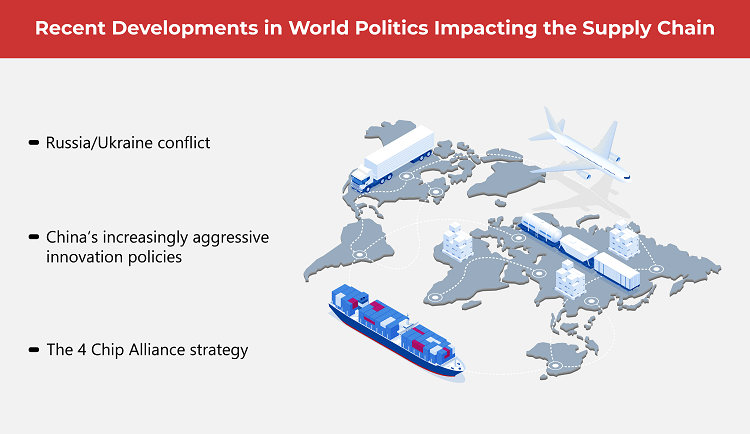
Dominant players and game changers in the supply chain
Global capitalism, along with the industries and systems that support it, is changing. Economists and business insiders are calling it the great “rewiring”. The Economist is calling it a “reinvention”. At the center of all the talk about shifting paradigms and rethinking structures is the global supply chain and how disruptions such as the pandemic, the conflict in Ukraine caused by the Russian invasion, and changing relationship dynamics between governments are forcing major pivots.
The semiconductor industry, along with food supply chains and the automotive industry are the biggest links most impacted by these events. These are worthy of attention and a closer look because a lot of what’s happening and being discussed between world and business leaders ripple down to us ordinary citizens.
The larger objective of some of these leaders is to establish more reliable, resilient, and redundant supply chains that are better suited to the many ongoing uncertainties happening everywhere, and all at once. Lowering costs where industries could do so used to be a higher priority, but now the focus is on efficiency and adaptability, as well as reducing reliance on a single supplier.
That supplier is China. In light of the country’s more aggressive policies on innovation, asserting dominance towards Hong Kong, Taiwan, and India, and their territorial conflicts with neighboring countries, many Western countries are now thinking twice about undertaking ventures with China.
In January 2022, a survey from the Union Bank of Switzerland revealed that more than 90% of businesses were in the process of pulling out from projects in China or were planning to. Many businesses regard working with China to be risk-laden, and others disagree with various issues concerning the country, such as their suppression of minority people in Tibet. Such developments do not help with how the country is now perceived by others.
The same could be said about Russia, and President Vladimir Putin’s decision to invade Ukraine. This has caused a palpable shortage in the world’s supply of grain, wheat, and other starch products.
Fuel and french fries became prized commodities, with the threat of scarcity for both in several countries causing real concern and near panic in some cases. For example, in the Philippines, customers were unable to order large portions of french fries for a few months from fast food chains due to the global freight crisis.
OEMs and automakers are also feeling the impacts of geopolitical issues. Very recently, U.S. vice president Kamala Harris has vowed to work closely with South Korea on an EV dispute. This stems from the Inflation Reduction Act that limits tax credits to North America for building EVs. This requires automakers to assemble EVs in North America to receive subsidies. This poses a threat to South Korean OEMs such as Hyundai and Kia, both of which currently do not have any car plants in the United States.
To further create complexity surrounding this, all three of South Korea’s battery makers import most of their essential minerals from China, which presents another obstacle for OEMs in the U.S.
Related to this conflict, Vice President Harris met with industry leaders in Japan to further discussions and rally support from the country, as well as South Korea and Taiwan to bolster the semiconductor supply chain. These countries plus the United States are part of what is now being called the Chip 4 Alliance, a strategy to strengthen relationships for access to chips and to weaken China’s involvement in the trade.
China currently supplies 90% of vital minerals for semiconductor chip production.
While diplomatic discussions determine the fate of how we as end users of electronic products approach, think, and ultimately consume them, we can only stand by and wait for larger outcomes that directly and indirectly impact our livelihoods and lifestyles.
Current events and legitimate reports of news can give us clues concerning how well some of our leaders are responding to these global issues, and in turn, impact the precarious supply chain. It would be interesting to follow these developments if only to keep track of how every nuance in diplomatic relationships has the power to strengthen or sever the links of the supply chain the whole world relies on.
As one of the Top 19 EMS companies in the world, IMI has over 40 years of experience in providing electronics manufacturing and technology solutions.
We are ready to support your business on a global scale.
Our proven technical expertise, worldwide reach, and vast experience in high-growth and emerging markets make us the ideal global manufacturing solutions partner.
Let's work together to build our future today.
Other Blog
